The Best Face Serums for Every Skin Concern
Dermatologists and editors offer reviews and share their favorites.
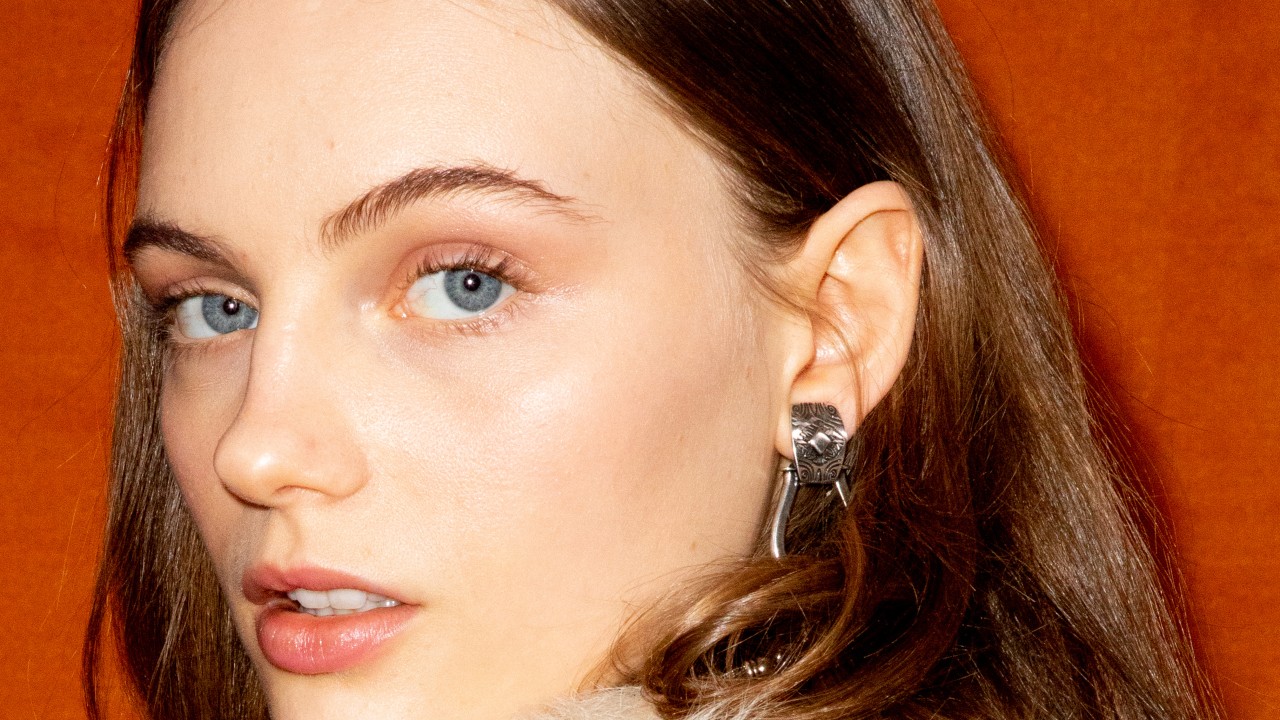

A solid skin routine contains a few essentials: A great cleanser, a hydrating moisturizer, and, of course, a sunscreen. Those are the basics. The fundamentals, if you will. Then there’s the always-expanding world of the best face serums. The pool of products that can actually take your skin to the next level, address your concerns, and elevate your entire routine. “Serums absorb into the skin quickly and deeply and are able to effectively deliver active ingredients to the skin,” explains board-certified dermatologist Dr. Hadley King. “The active ingredients contained in a serum are concentrated and the thin viscosity of the serum allows for skin penetration of optimum effectiveness in a shorter amount of time.”
Now, the active ingredients are going to vary—extensively. Some serums will be focused on hydration with hyaluronic acid, peptides, and ceramides at the forefront. Others will be laser-focused on specific skin concerns. Think: salicylic acid for acne; niacinamide for skin tone; vitamin C serums for an antioxidant boost. Even though serums can be game-changing, they can also be confusing. Which one is the best? How many should I use? Which one goes on first?
To clear up any confusion and find out which serums reign supreme (including Gwyneth Paltrow, Tracee Ellis Ross, and Hailey Bieber's favorite), keep scrolling to find the 20 best face serums, from brightening serums to antioxidant serums and everything in between. These have been hand-picked, tested, and approved by our team of editors; consider these the best of the best.
The Best Face Serums
- The Best Face Serum Overall: SkinMedica TNS+ Advanced Serum
- The Best Calming Face Serum: Dr. Barbara Sturm Calming Serum
- The Best Brightening Face Serum: Vitner's Daughter Active Botanical Serum
- The Best Vitamin C Face Serum: Skinceuticals CE Ferulic
- The Best Acne-Fighting Face Serum: iS Clinical Active Serum
- The Best Face Serum for Mature Skin: Lancome Absolu The Serum
- The Best Face Serum for Dark Spots and Pigmentation: Mele Skincare Even Dark Spot Corrector
- The Best Face Serum for Hydration: Lancer Skincare Ultra Hydrating Serum
- The Best Face Serum for Under Makeup: Charlotte Tilbury Magic Serum
- The Best Exfoliating Face Serum: Biossance Squalane + Lactic Acid Resurfacing Night Serum
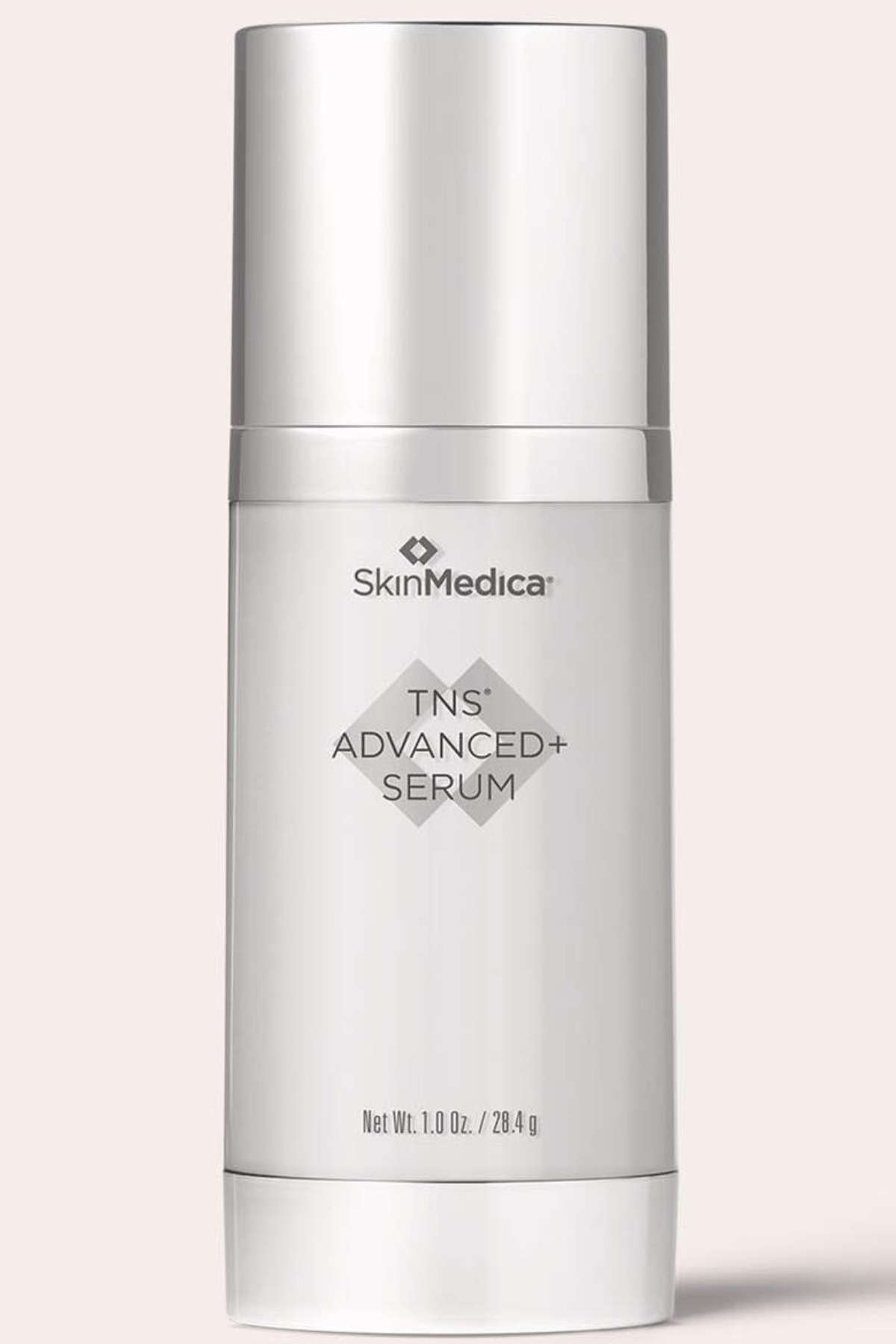
While this serum is designed for mature skin types, I’m a firm believer that it’s a worthwhile addition for anyone’s skincare routine. “This dermatologist favorite is formulated with a potent blend of growth factors to help smooth and reduce appearance of fine lines and wrinkles,” says board-certified dermatologist Dr. Tiffany Libby. With continued use, it’s brightened my overall complexion, created a firmer appearance, and given my skin a smoother, more even texture.
Pros: Anti-aging; Smoother; Brightening; Dermatologist-approved.
Cons: Takes a few weeks to see results.
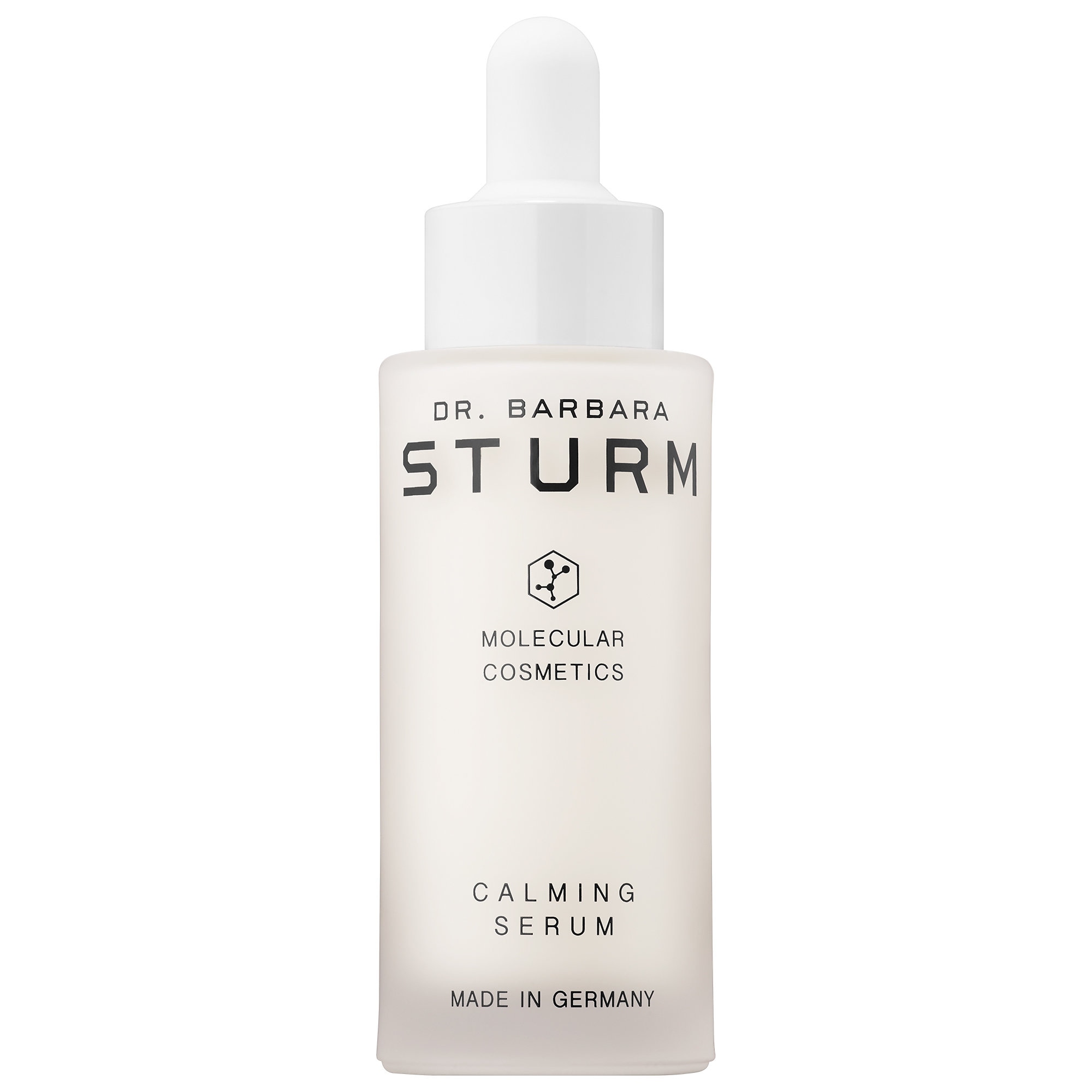
If I could only have one serum for the rest of my life, it would be this one. I have rosacea and a lot of inflammation in my skin, so I run red on my cheeks and nose. Within just a week and a half of using this one per day, my redness quite literally vanishes, leaving me with a calm, even tone. With purslane and sweet almost oil as star ingredients, the milky serum soothes irritation and boosts moisture.
Pros: Amazing for rosacea; Editor-approved
Cons: Expensive
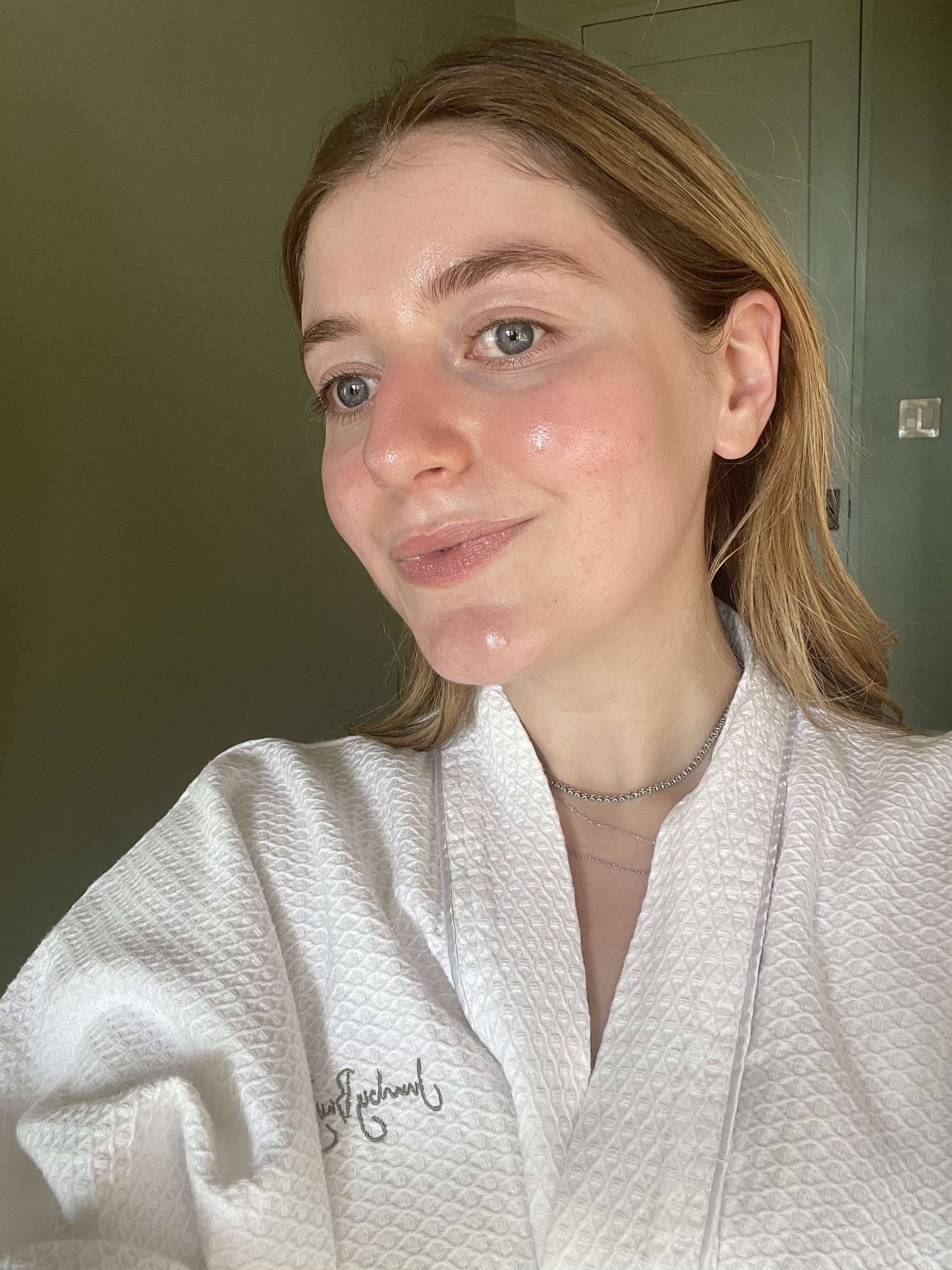
Beauty Editor Samantha Holender credits Dr. Sturm's Calming Serum for her soothed complexion.
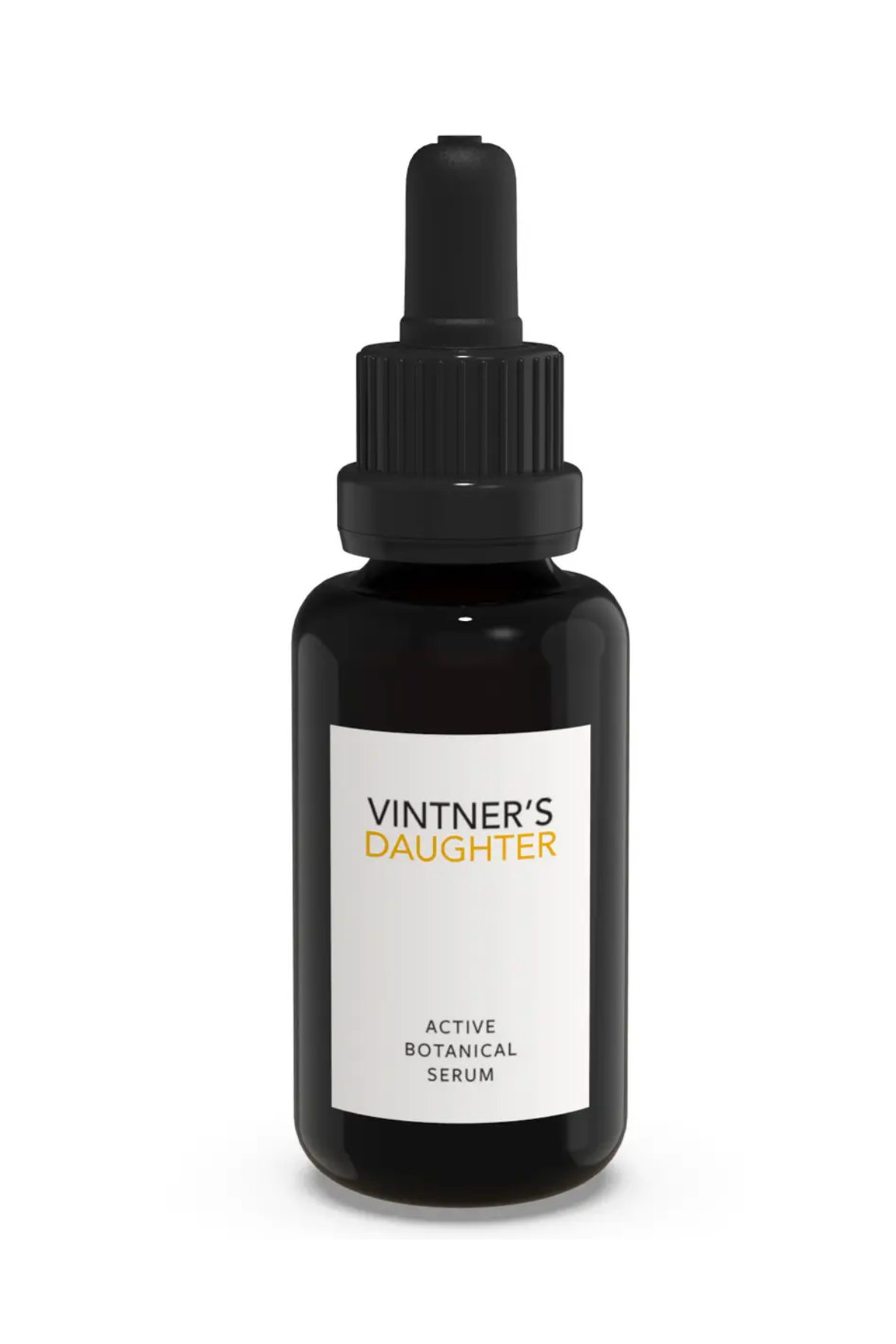
This highly concentrated serum warrants its popularity—take it from Beauty Director Deena Campbell. "Aside from the brightening vitamins and minerals, you’ll also find omegas three, six, seven and nine that’s suitable for all skin types," she shares. "Best of all, the echinacea encourages your skin to produce hyaluronic acid, which, admittedly, I can’t seem to get enough of even in the warmer months. Apply daily for best results."
Pros: Editor-approved; Brightening; Hydrating; Good for all skin types.
Cons: Some reviewers found the texture too oily.
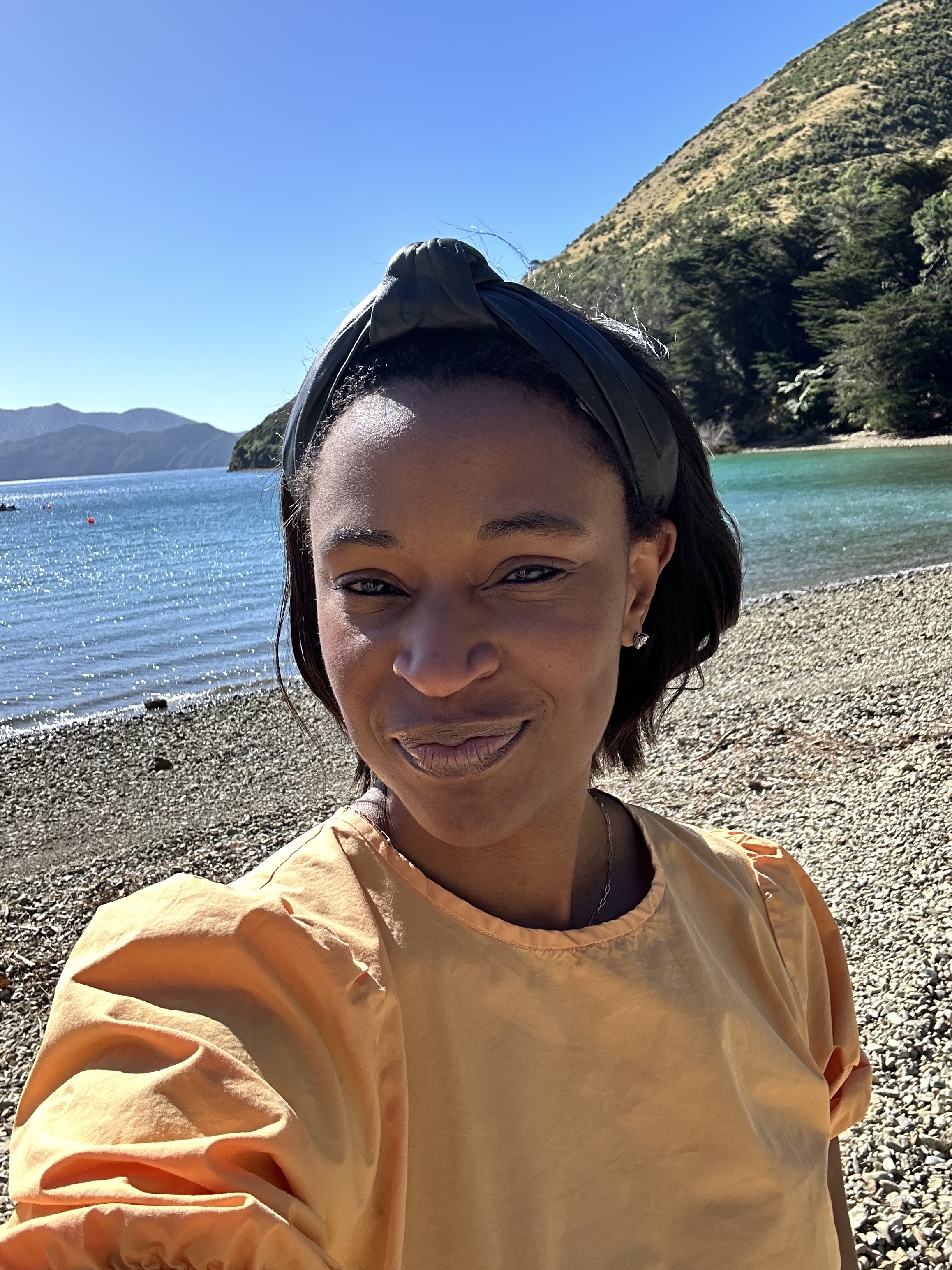
Beauty Director Deena Campbell wearing Vitner's Daughter's Active Botanical Serum.
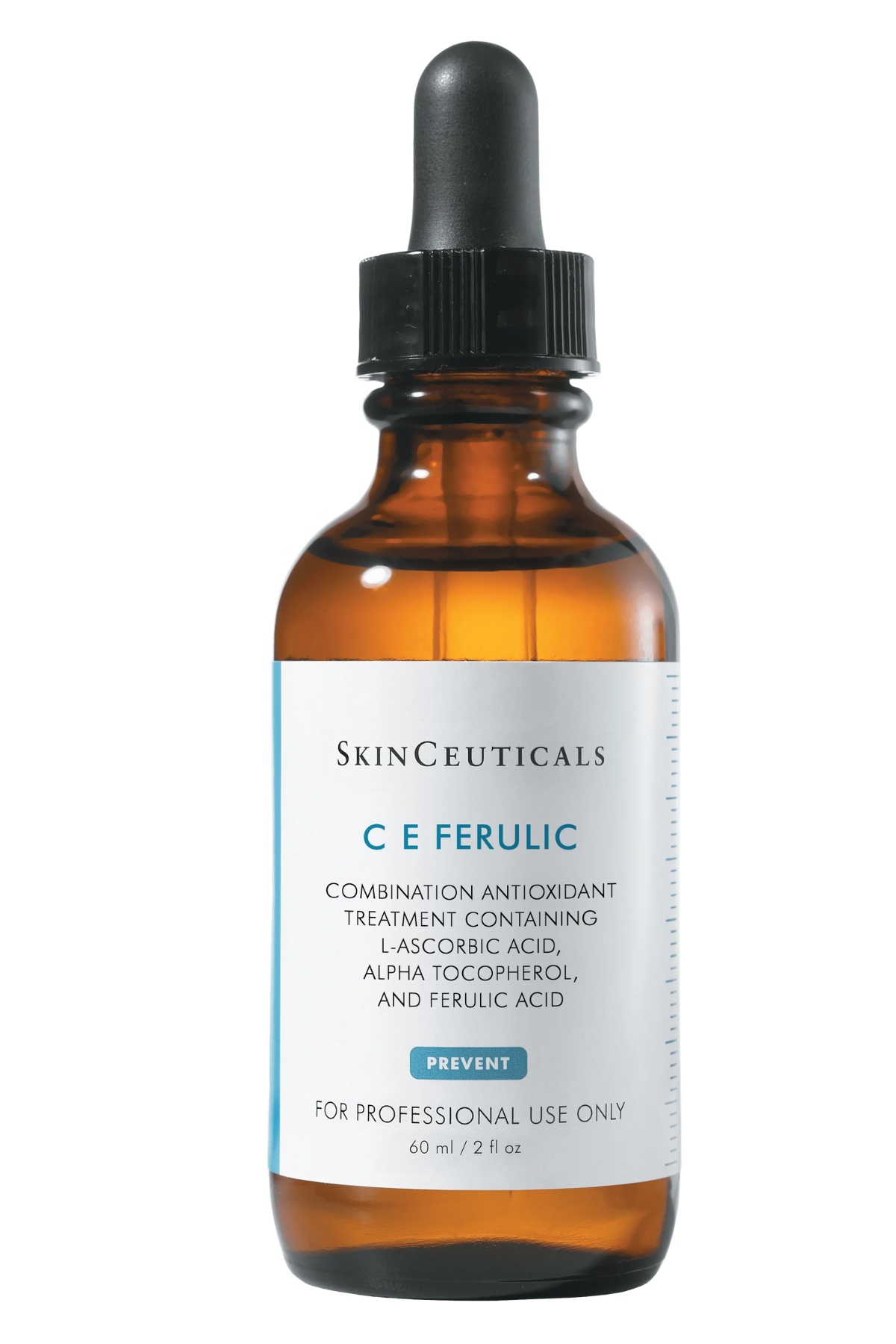
Considered to be the gold standard vitamin C product, this serum combines vitamin C, ferulic acid, and vitamin E. "Vitamin C is used to address hyperpigmentation and dullness,” says Dr. Hammerman. “Ferulic acid is an antioxidant from plants that works synergistically with vitamins C and E. " As a result, this serum helps protect the skin from environmental damage and softens the appearance of fine lines. And if that's not enough to convince you, Gwyneth Paltrow, Tracee Ellis Ross, and Hailey Bieber are big fans of the serum.
Pros: Stabilized vitamin C; Brightening; Antioxidant Protection
Cons: Some reviewers said it has a strong smell
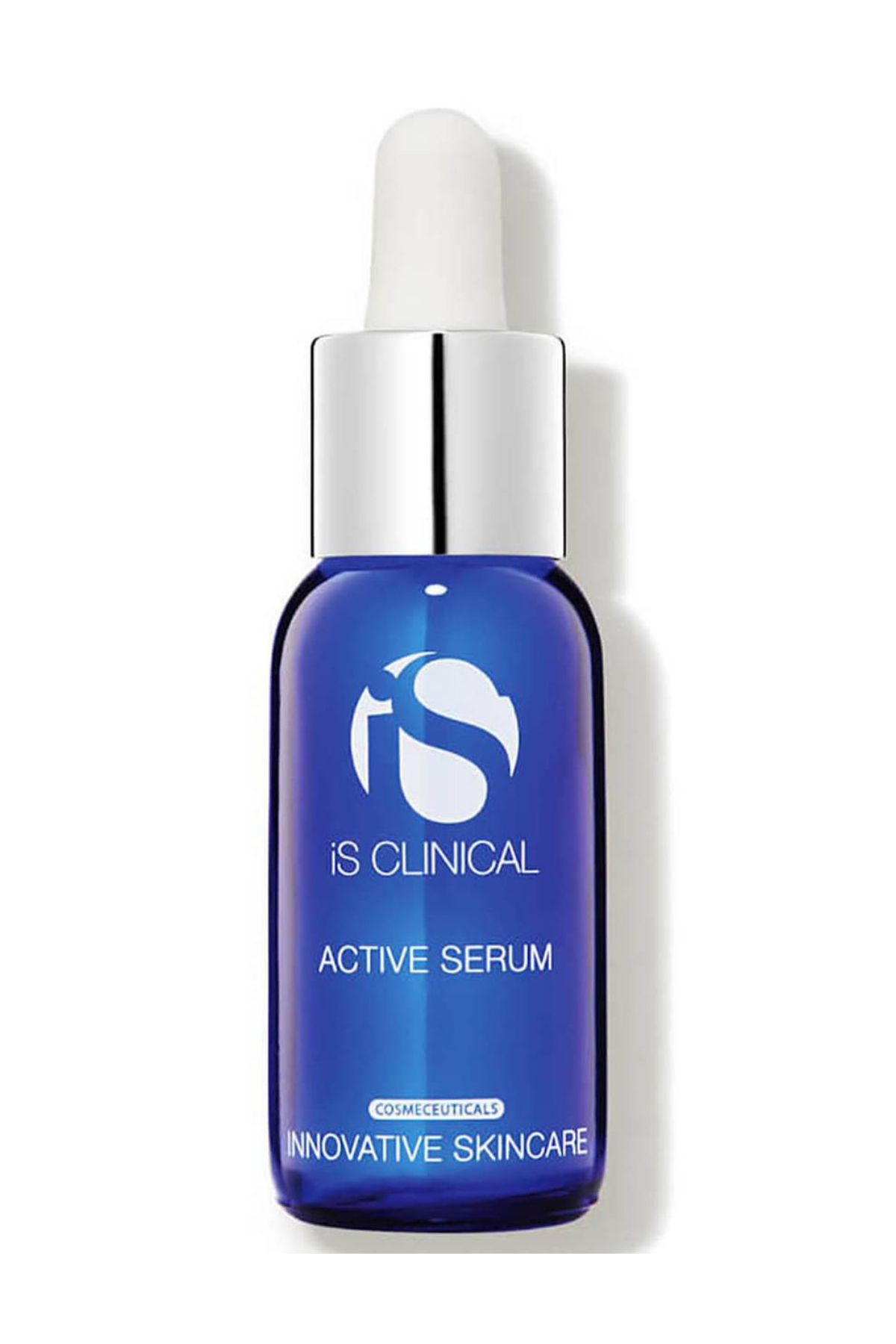
Great for oily skin or anyone dealing with breakouts, this derm-developed serum might be the missing piece in your acne-fighting routine. Powered by both lactic and glycolic acids, it’s going to exfoliate away dead skin cells, which in turn will help prevent pores from getting clogged. While it’s best used as an all-over product, it can be used to spot treat certain problem areas like the nose or chin. Just be warned: You will feel a slight tingling sensation upon application—it’s totally normal.
Pros: Addresses acne, Reveals brighter skin
Cons: Drying for some; Not advised for sensitive skin.
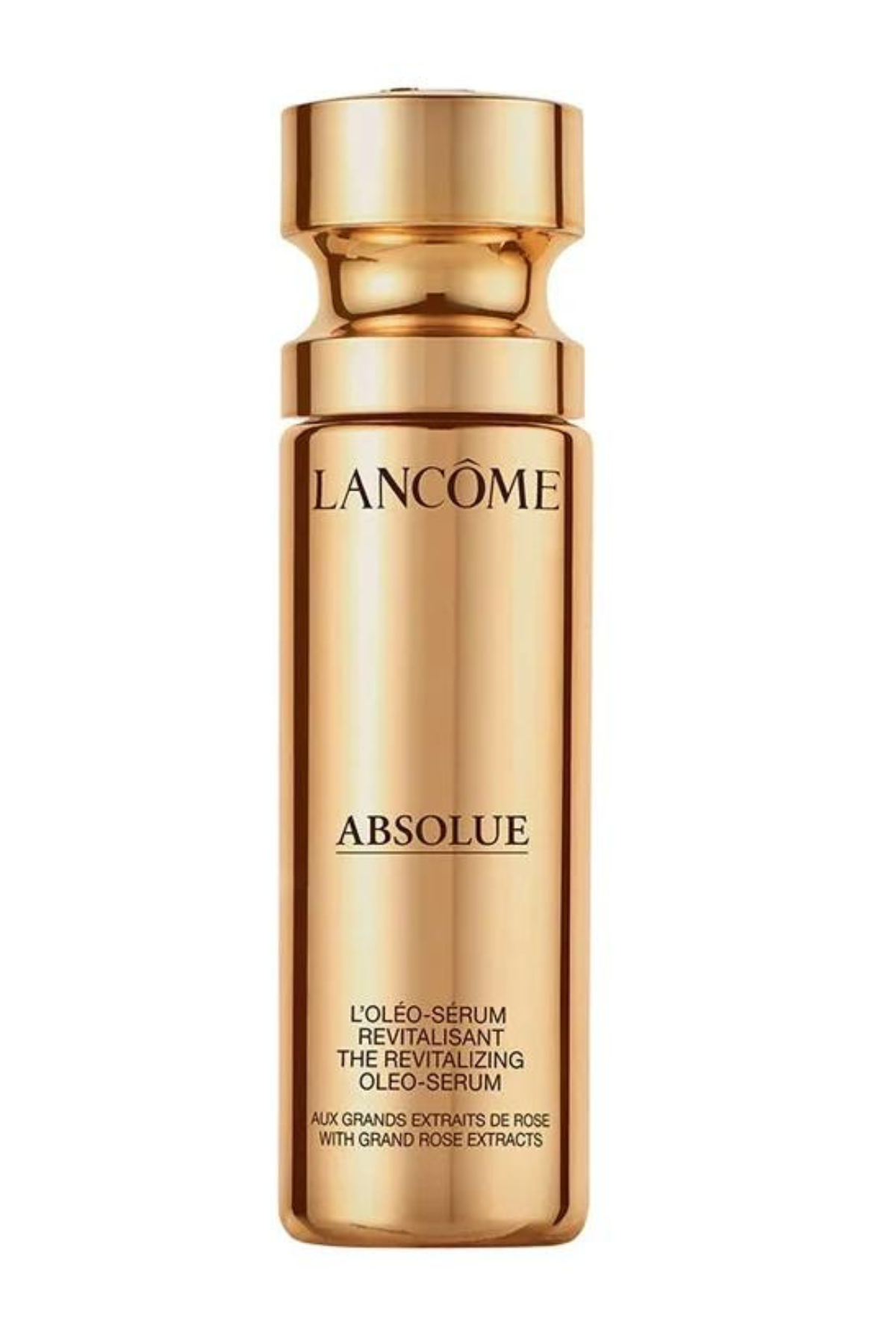
If skin sagging and volume loss are some of your skin concerns, it might be worthwhile to invest in this Lancôme serum from the L’Absolue range. It’s complete with grand rose extract, a crazy strong antioxidant that’s able to protect, soothe, and moisturize. Other ingredients in the mix are focused on smoothing out fine lines, evening skin tone, and most notably, firming the skin. The serum smells like rose petals and has a creamy, smooth texture.
Pros: Firming; Packed with antioxidants; Good for anti-aging.
Cons: Some reviewers say the scent is too strong.
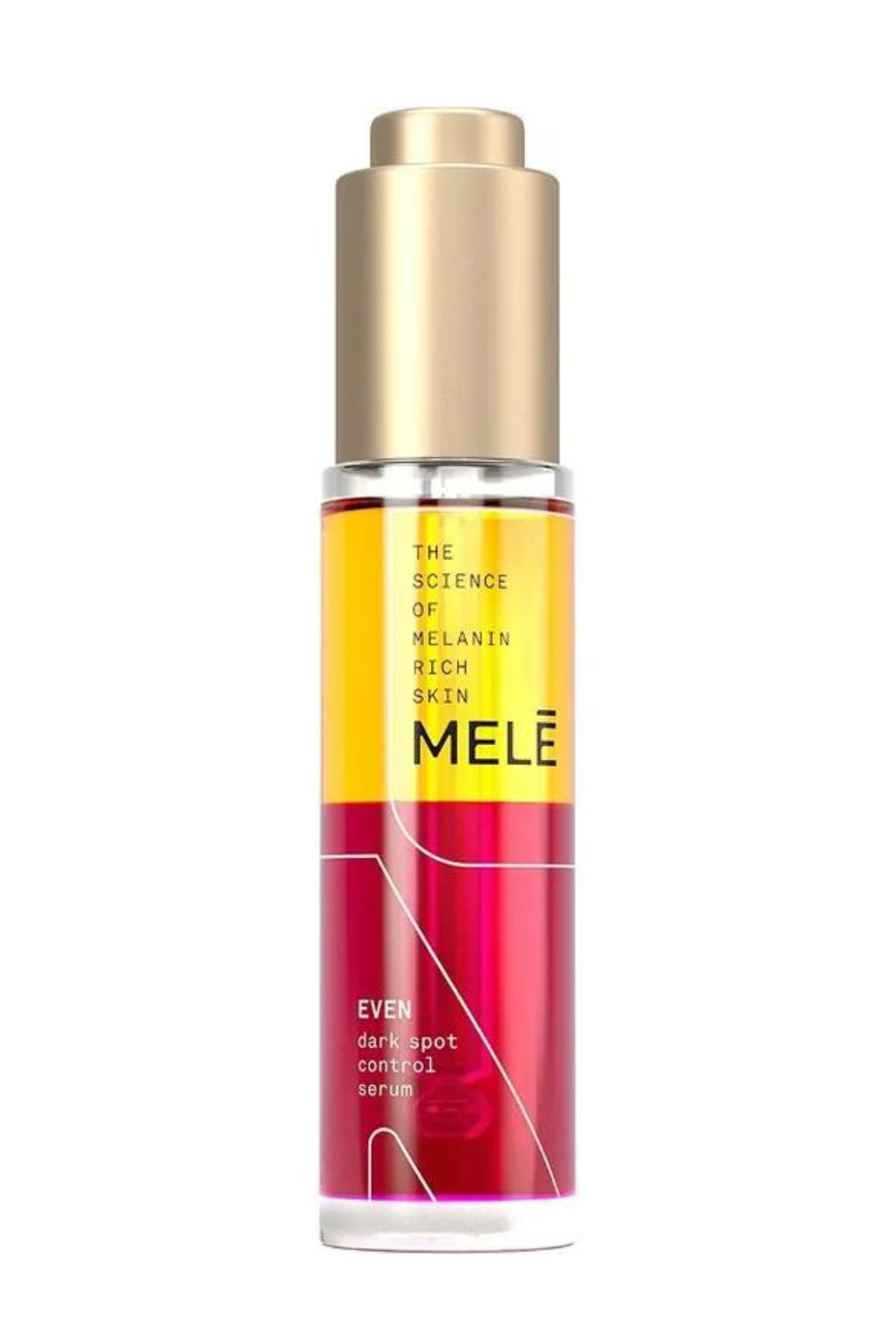
Specifically designed to fade dark spots on melanin-rich skin, this affordable serum is packed with efficacious ingredients. “It contains pro-retinol to help reduce dark spots, as well as niacinamide, which helps to even skin tone and smooth skin texture,” explains Dr. King. “It also contains hexylresorcinol, which helps to brighten skin, as well as vitamin E.” While you might think that a serum with so many powerful actives would be drying, I promise this is just the opposite. It leaves skin supple and hydrated.
Pros: Brightens dark spots; Evens skin tone and texture
Cons: Some reviewers say it can feel oily.
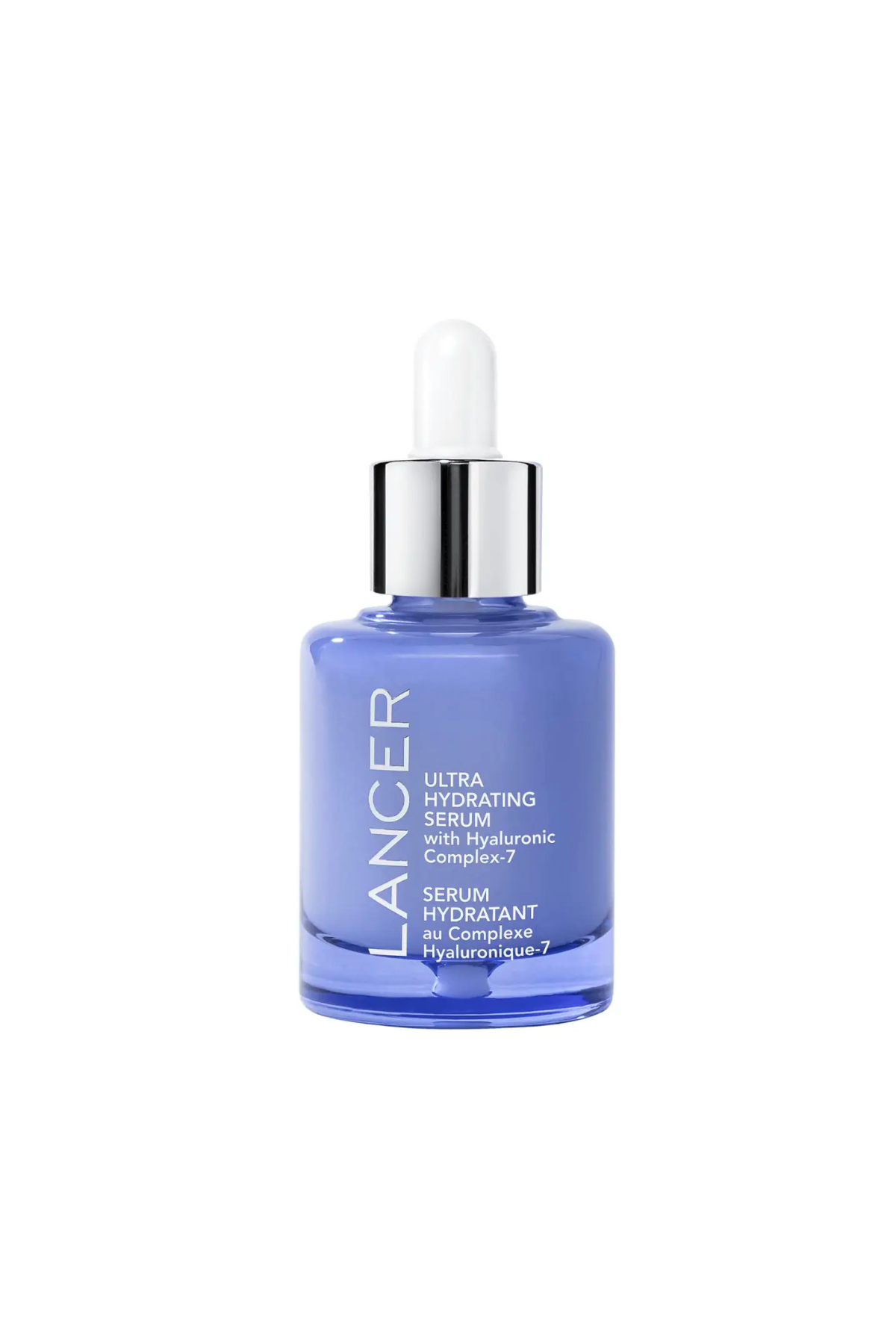
My skin barrier is compromised from trying way too many products (it's an occupational hazard), but I swear this serum is single handedly responsible for doing a major repair. Formulated with seven different molecular weights of hyaluronic acid and a ceramide complex, the silky serum has given my skin unmatched hydration. Within just a few weeks of using this morning and night, my skin stopped burning, tingling, and itching.
Pros: Good for rosacea; Good for sensitive skin; Good for repairing the moisture barrier in your skin; Lightweight;
Cons: Can take a few weeks to show results.
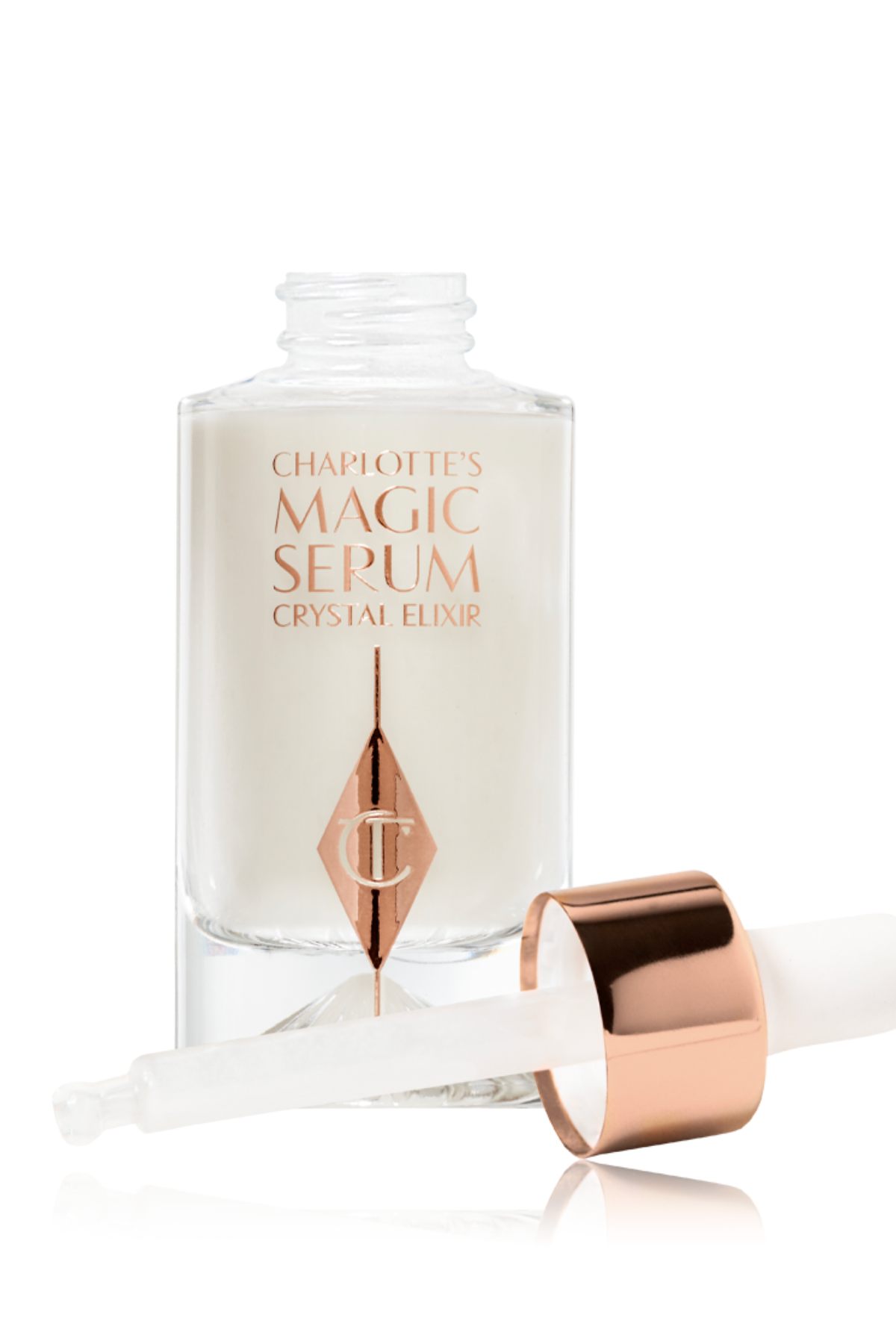
The best prep for makeup is great skincare—and this specific product was designed explicitly to prep skin for foundation application. “It contains glycerin, lactic acid, hyaluronic acid, and polyglutamic acid—all humectants that help create an immediate plumping effect that makes the skin look younger and smoother,” says Dr. King, who names this as one of her favorites. “It also contains shea oil, which helps to lock in moisture, but it doesn't overall feel oily."
Pros: Multi-benefit; Glowy finish; Plumping
Cons: Some reviewers say it made them break out.
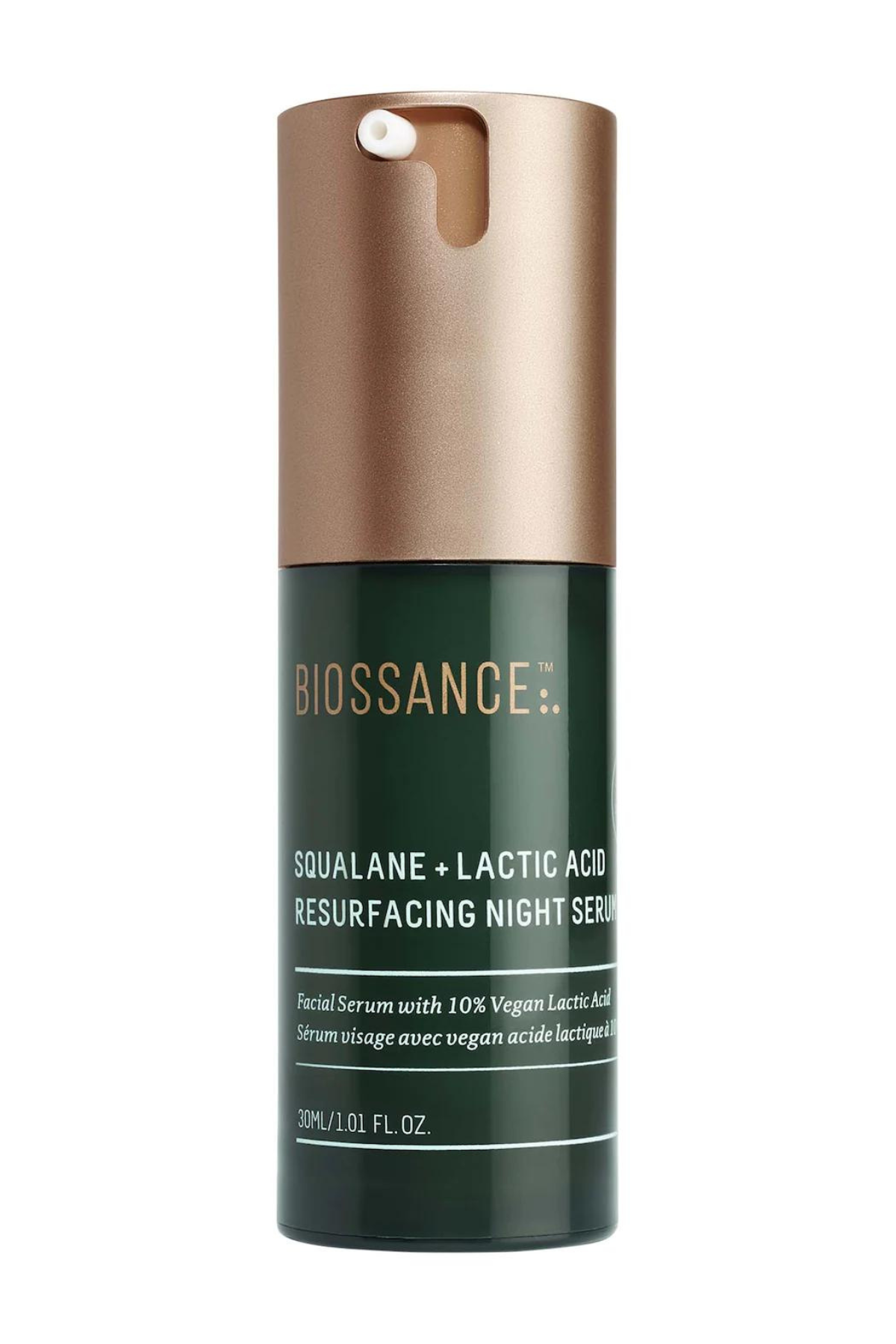
Waiting six to eight weeks is the standard time to see results from a skincare product. But with this highly active serum, you’ll notice a change in just about 14 days. The retexturizing serum, powered by lactic acid, will smooth out rough and bumpy texture, plump up fine lines, and give you an overall more radiant complexion.
Pros: Resurfacing; Smoothing; Brightening
Cons: Has a slight scent
Also Recommended
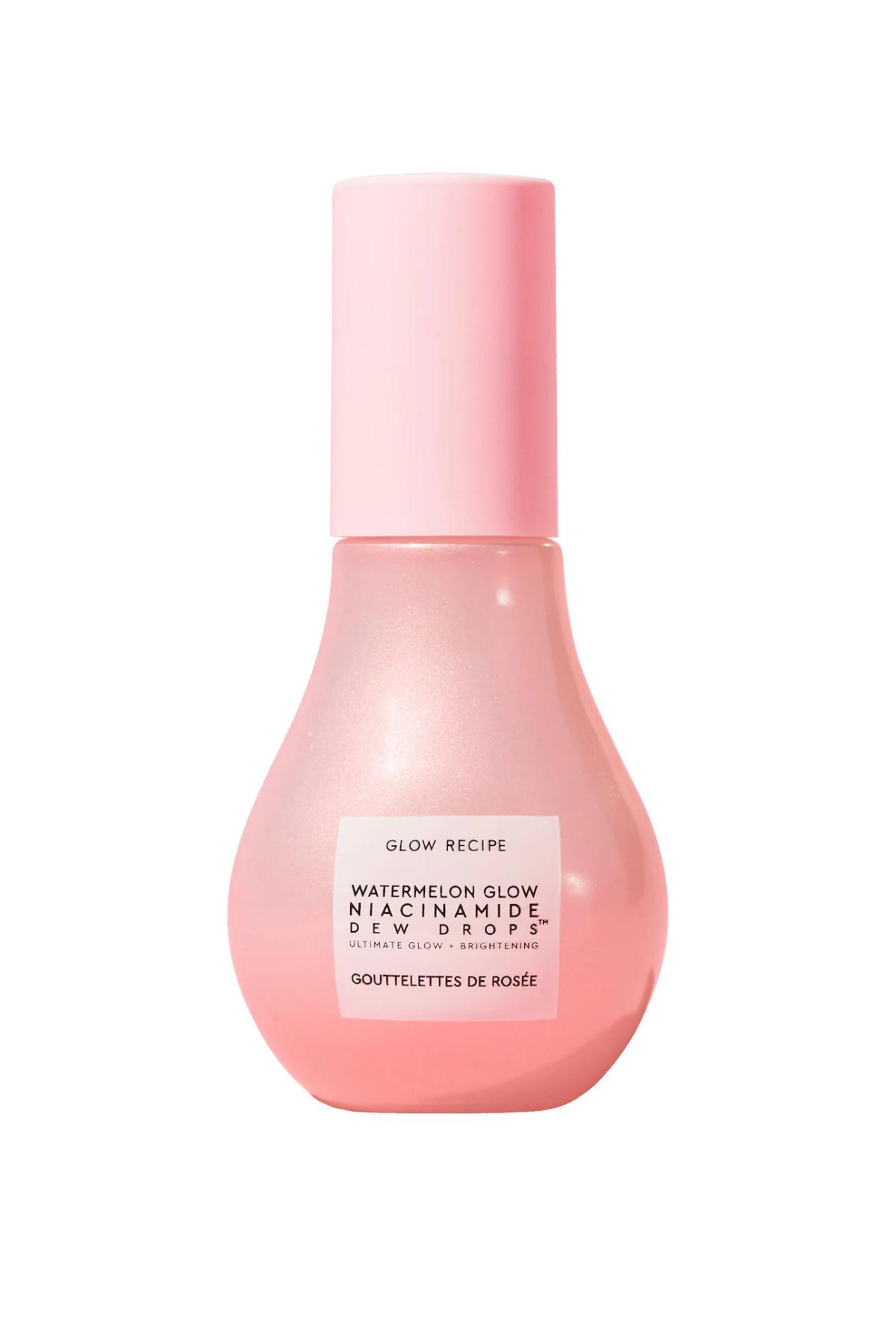
Glow Recipe’s watermelon-based formulas are lightweight and multi-purposeful—yet powerful and effective, especially when minimizing pores. If you’re seeking a serum free of harsh chemicals, but still effective at regulating oil production and evening skin texture, give this a go. It has a shimmery finish, too so you'll be left with an iridescent glow.
Pros: Glowy; Lightens hyperpigmentation
Cons: Some reviewers found the formula a little tacky.
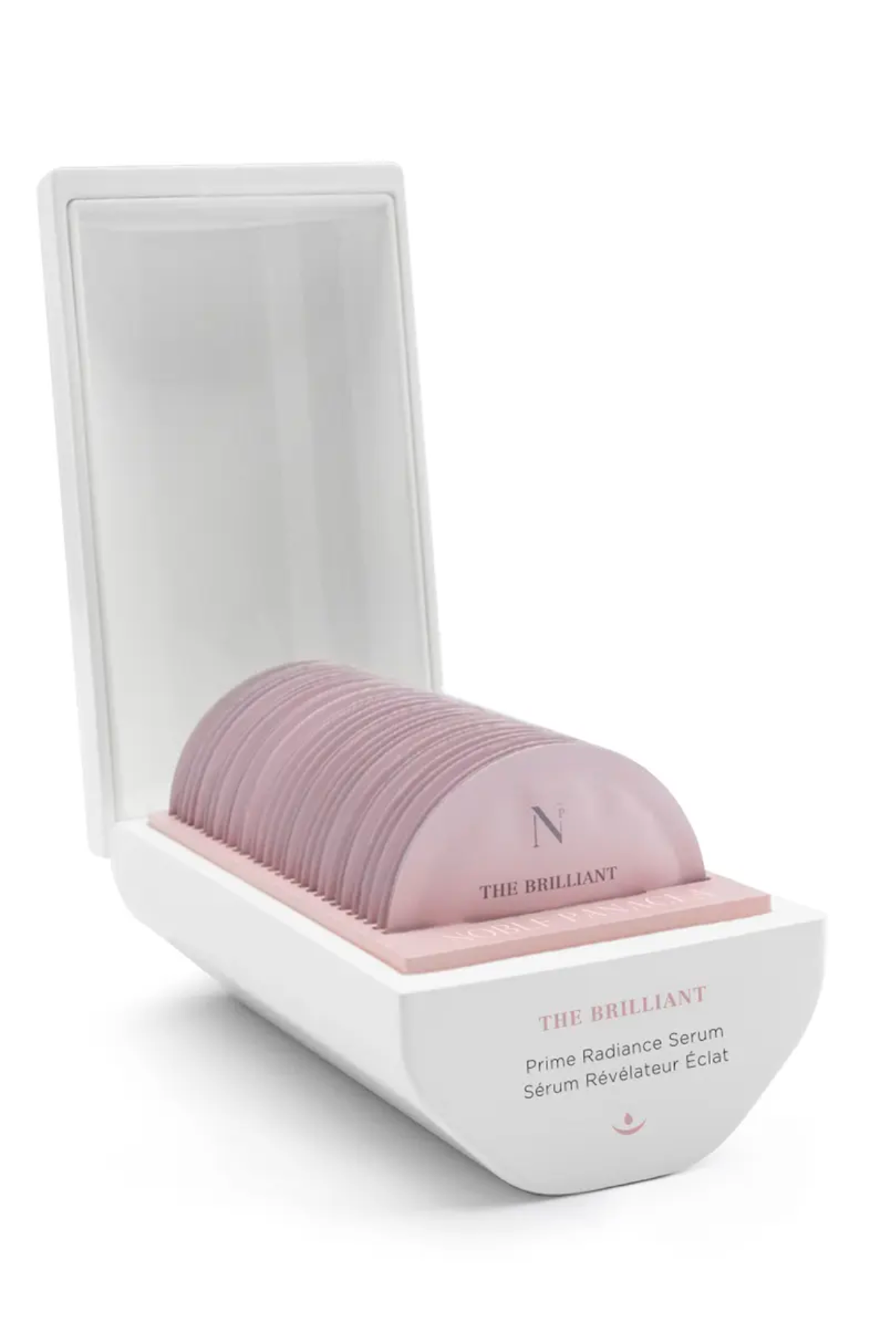
This science-backed, luxury skincare brand gets Campbell's sign-off. "This serum, formulated with malachite, bakuchiol, and glycolic acid, is in a league of its own," she says. "Its founder, Sir Fraser Stoddart, a Nobel Prize-winning chemist, combined those ingredients to intensify your natural glow and build resilience against stress, pollution, and free radicals." Each tiny packet includes just enough serum for one application, making it the perfect travel companion.
Pros: Editor-approved; Good for travel; Fights signs of aging; Protects against free-radicals; Cruelty-free formula
Cons: Not good for sensitive skin
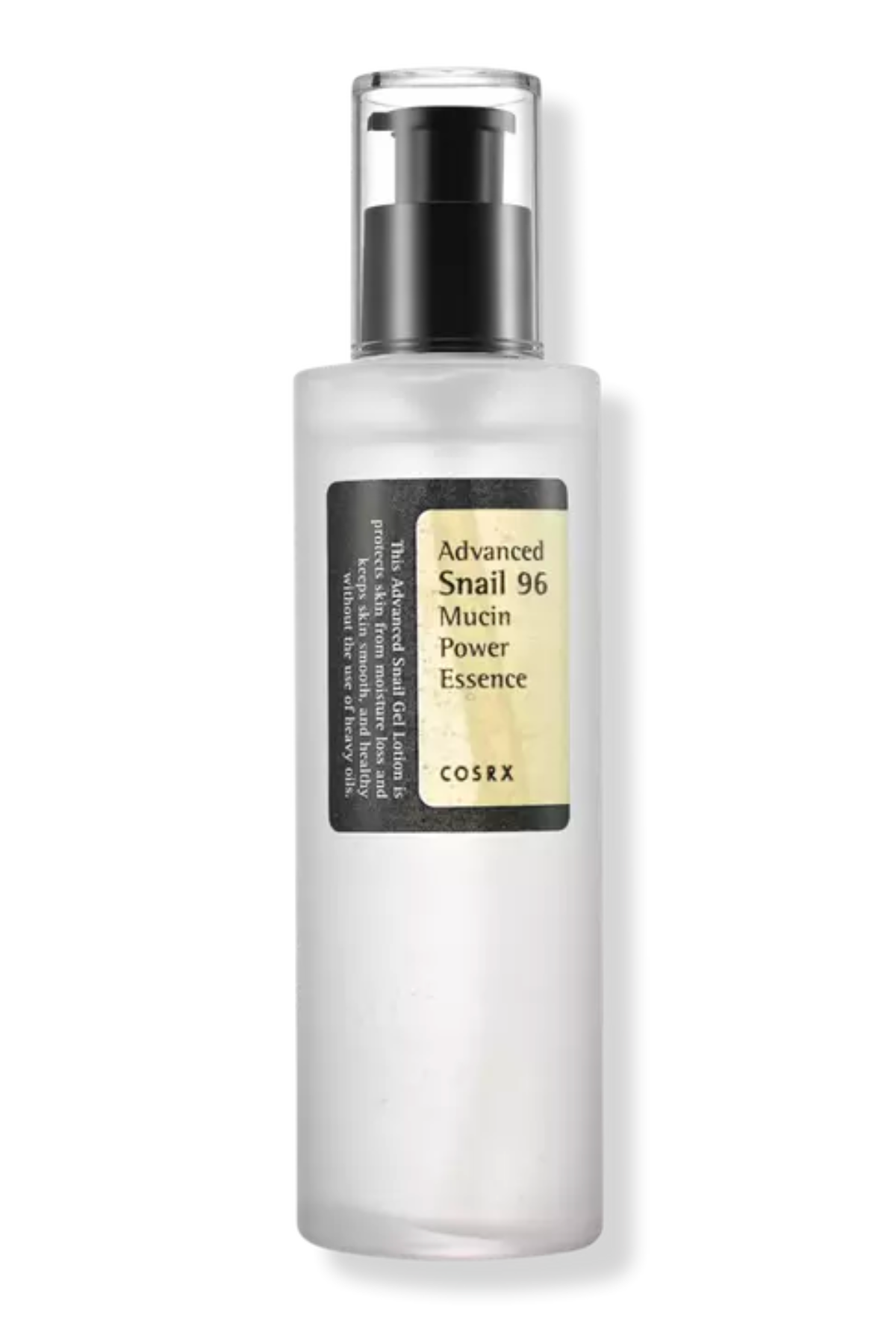
If you've found yourself on BeautyTok, in the past year, you're well acquainted with the powers of snail mucin. The K-Beauty ingredient is a powerhouse hydrator and bestows a dewy glow. "Packed with collagen and hypoallergenic, this product almost instantly enhances my skin's glow without making my face feel greasy," says Beauty Writer Gabrielle Ulubay. "The formula lasts for ages, and is suitable for use on my combination and oily skin—even mid-breakouts."
Pros: Lightweight formula; Sinks in quickly; Good for dry skin; Good for combination skin; Editor-approved;
Cons: Some reviewers with sensitive skin said it breaks them out.
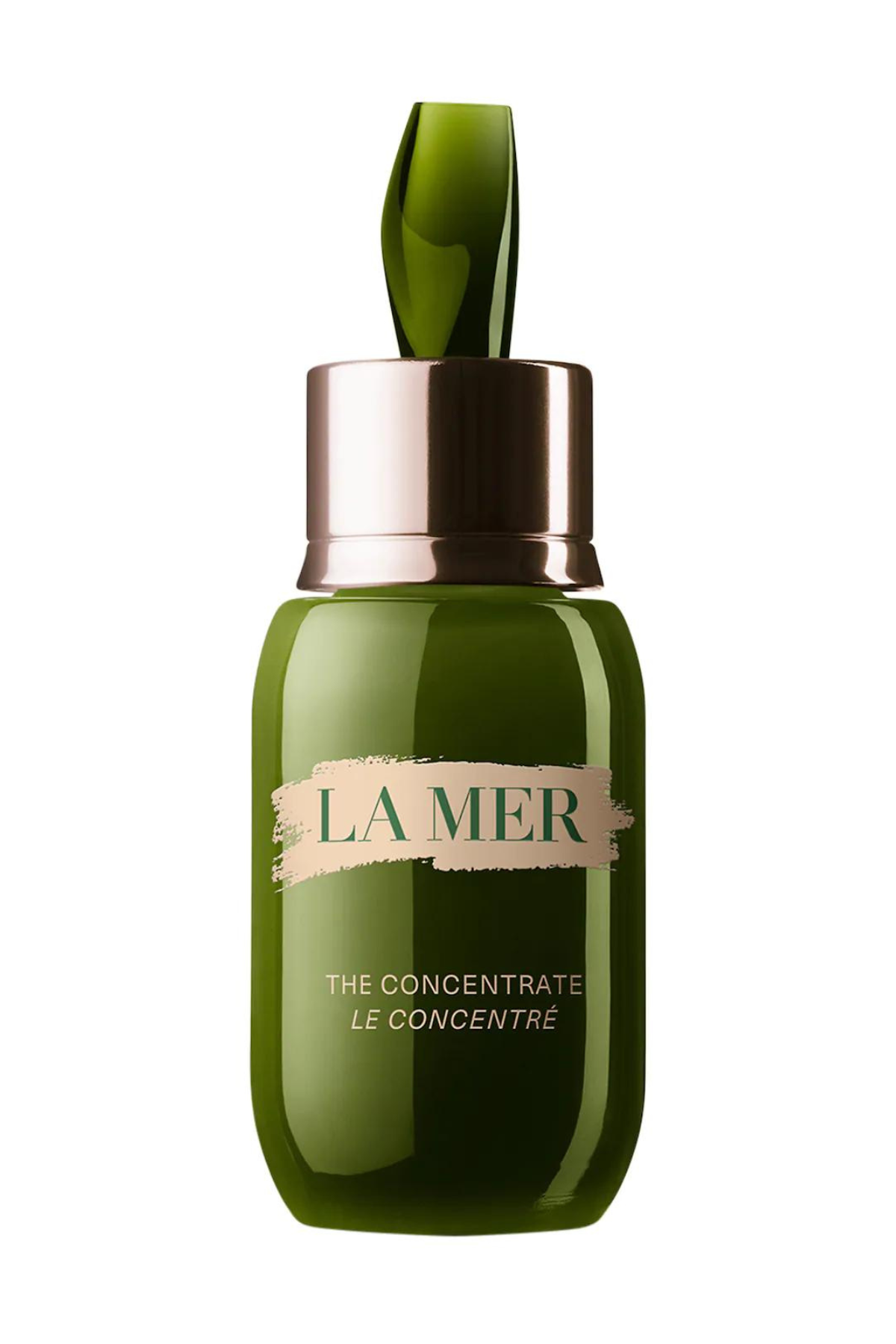
Try La Mer's signature Miracle Broth with this cult-favorite serum, which puts the skin in a state ripe for repair. Daily use leaves the skin is more hydrated, more balanced, and generally calmer and happier. It’s recommended to use this product twice a day, but the results are pretty fast-acting. If you don’t plan on keeping this as an integral part of your routine, toss it in a few weeks before a big event.
Pros: Hydrating; Anti-Aging; Calming; Dermatologist-approved.
Cons: Some reviewers found the texture was too slippy.
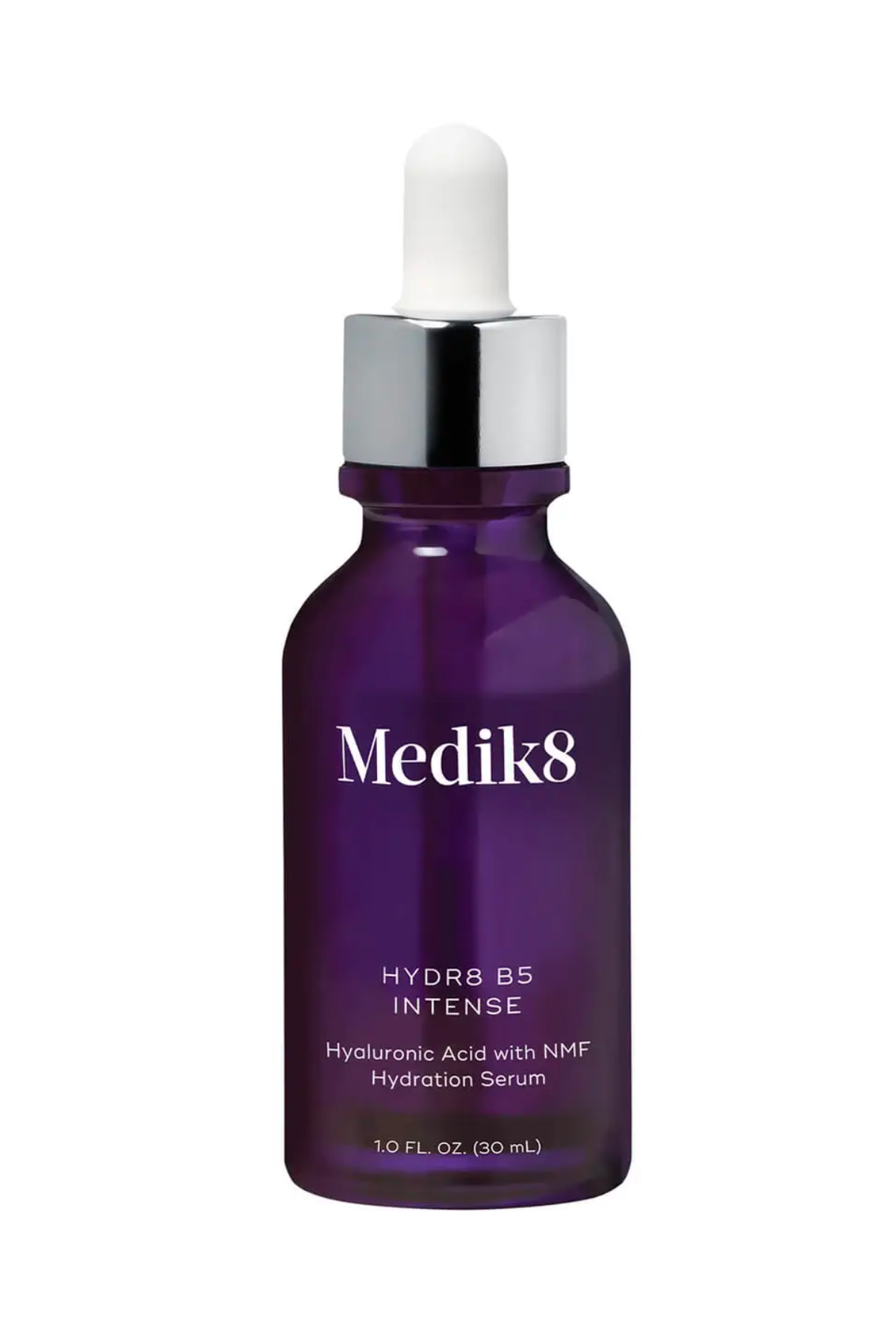
By now, we hope you instantly associate hyaluronic acid with long-term hydration—which is precisely what you'll get with a few drops of this intensive serum. "Think of this lightweight and fast-absorbing serum as a tall glass of water for your skin," says Campbell. "It offers supercharged moisture because of the fatty acids and sodium PCA that enhance your skin's natural ability to retain moisture, ultimately increasing hydration levels."
Pros: Editor-approved; Fast-absorbing; Helps your skin retain moisture.
Cons: Some reviewers found the texture too slippery.
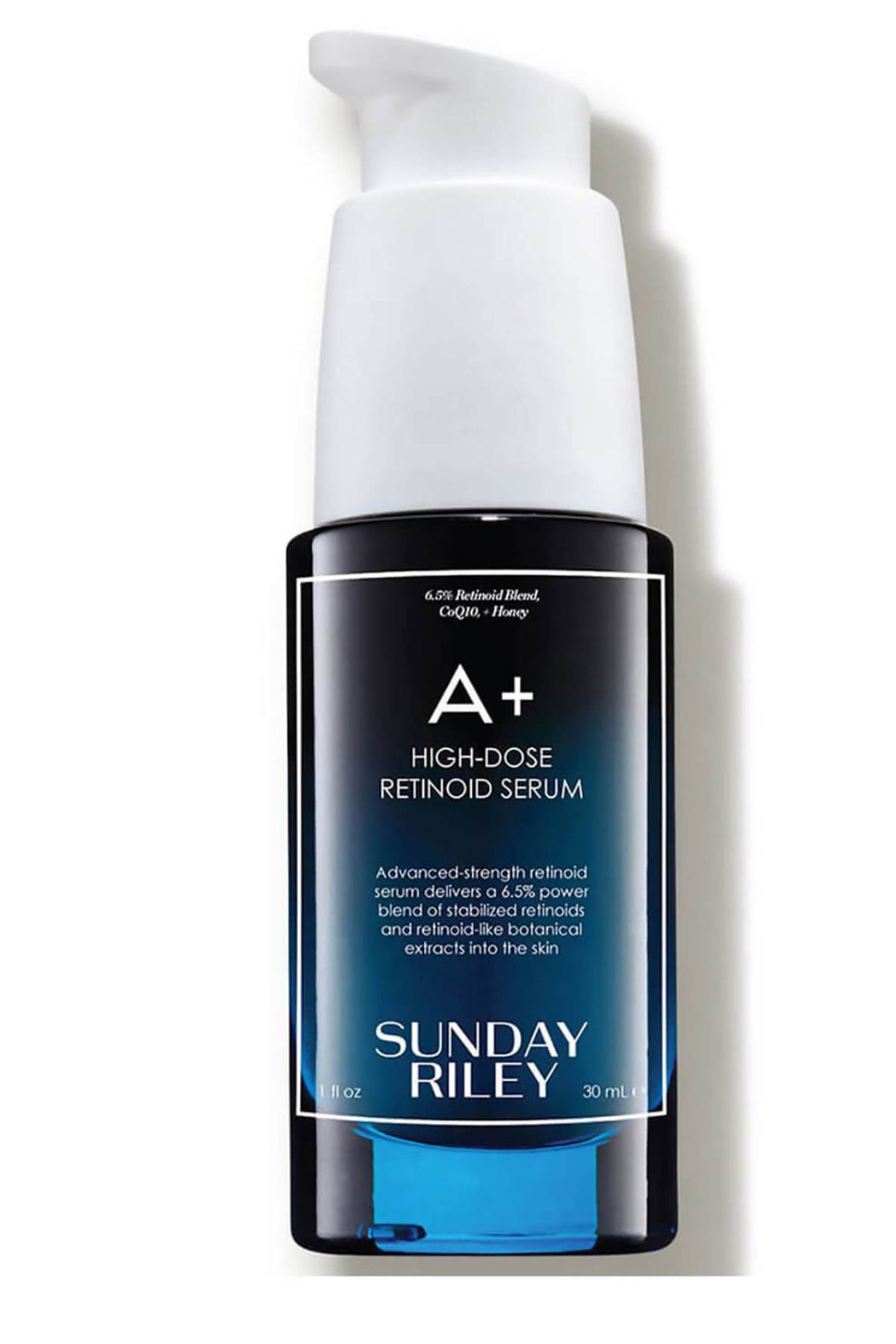
I’ve gone on and on and on about the importance of using a retinoid. The anti-aging benefits! The acne prevention! The even skin tone! If you’re looking for an over-the-counter option that delivers on its promises, try this Sunday Riley option. It blends different retinoids and retinol alternatives to speed up cellular turnover and keep pores clear of acne-causing gunk.
Pros: Smoothing; Brightening; Anti-aging; Good for acne
Cons: Has a smell; Might be drying
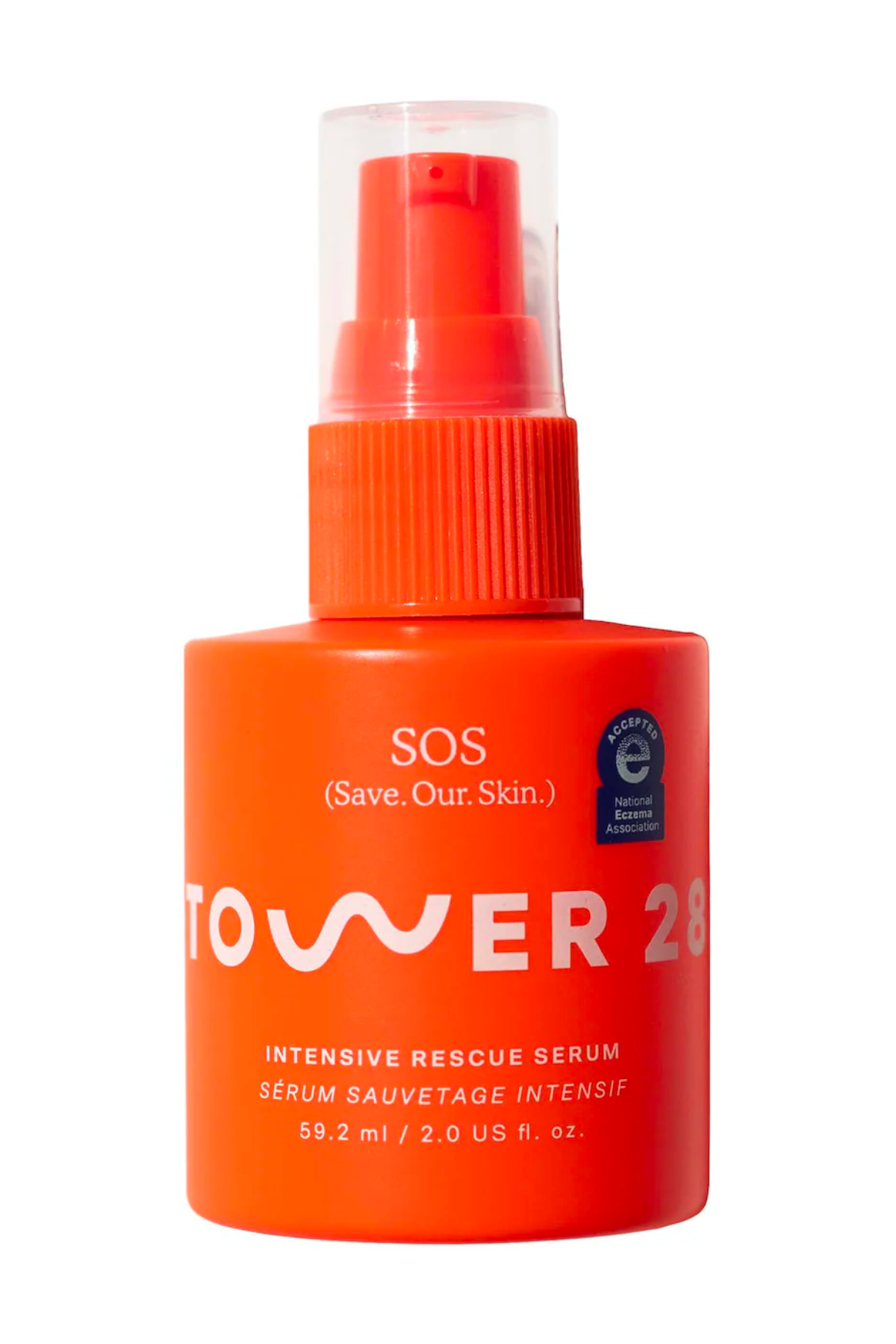
While no serum is going to completely get rid of cystic acne, this Tower28 formula can certainly help. Just listen to what E-Commerce Editor Julia Marzovilla has to say: “The minute I turned 27, my acne flared up. I picked up this Tower 28 serum on recommendation from our Beauty Editor, Samantha, and tons of videos on BeautyTok. I apply it specifically to the areas of my skin where acne flares. Not only does it calm redness, but I’ve noticed that it makes them come to a head just a little faster."
Pros: Good for acne; Editor-approved; Good for sensitive skin; Good for dry skin.
Cons: Pump can be faulty.
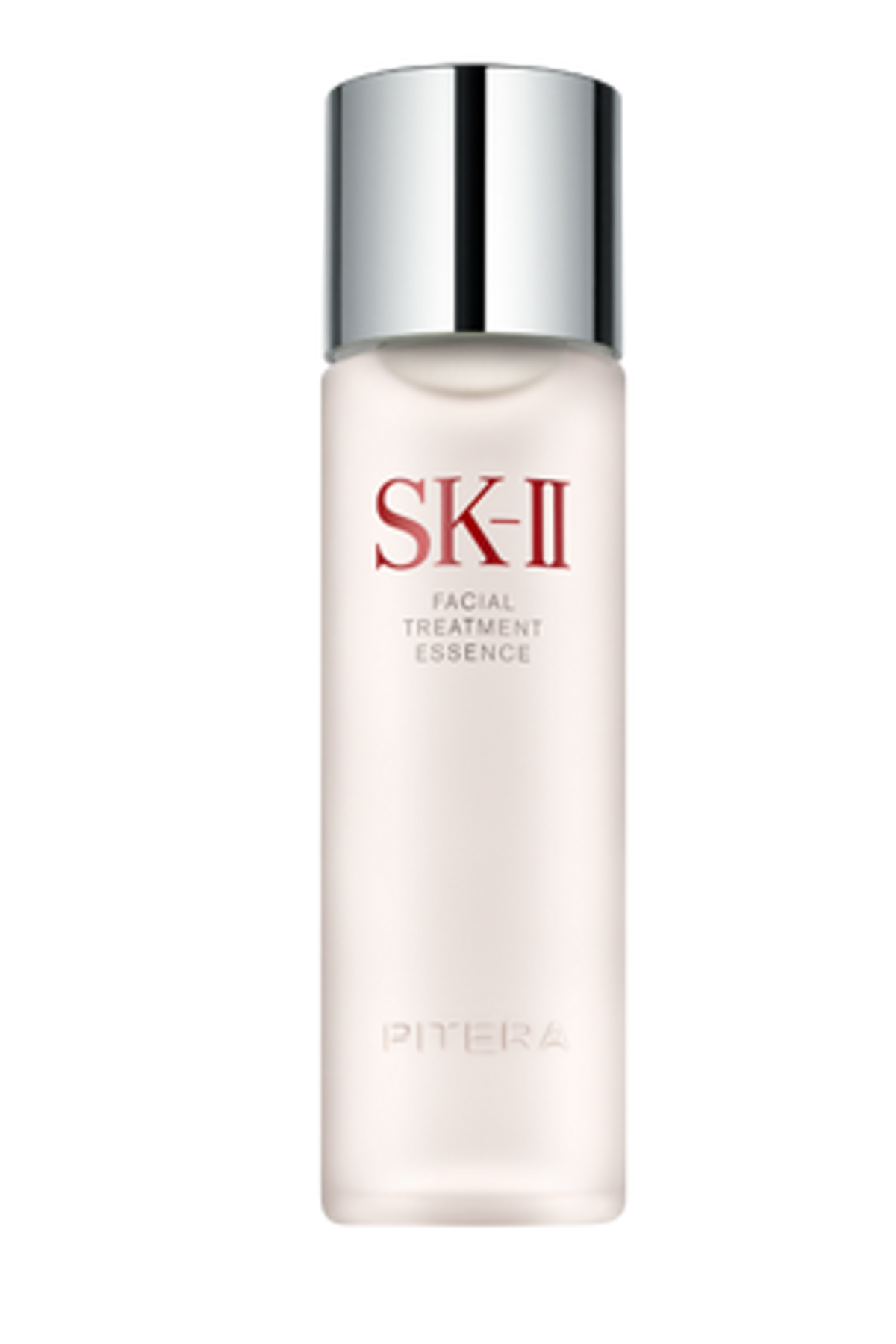
An essence-serum hybrid, this product is famed for being a transformative skincare step. The water-like, J-Beauty solution is loaded with upwards of 50 micronutrients, including a range of minerals, vitamins, proteins, and gentle acids. Its most notable ingredient is called PITERA, which is essentially a derivative of fermented yeast. While it doesn’t necessarily sound like the sexiest technology, I promise the results will put your jaw on the floor. Your pores will look tighter and your complexion will feel so much smoother.
Pros: Multi-Benefit; Skin softening; Pore shrinking
Cons: Watery texture can be difficult to apply.
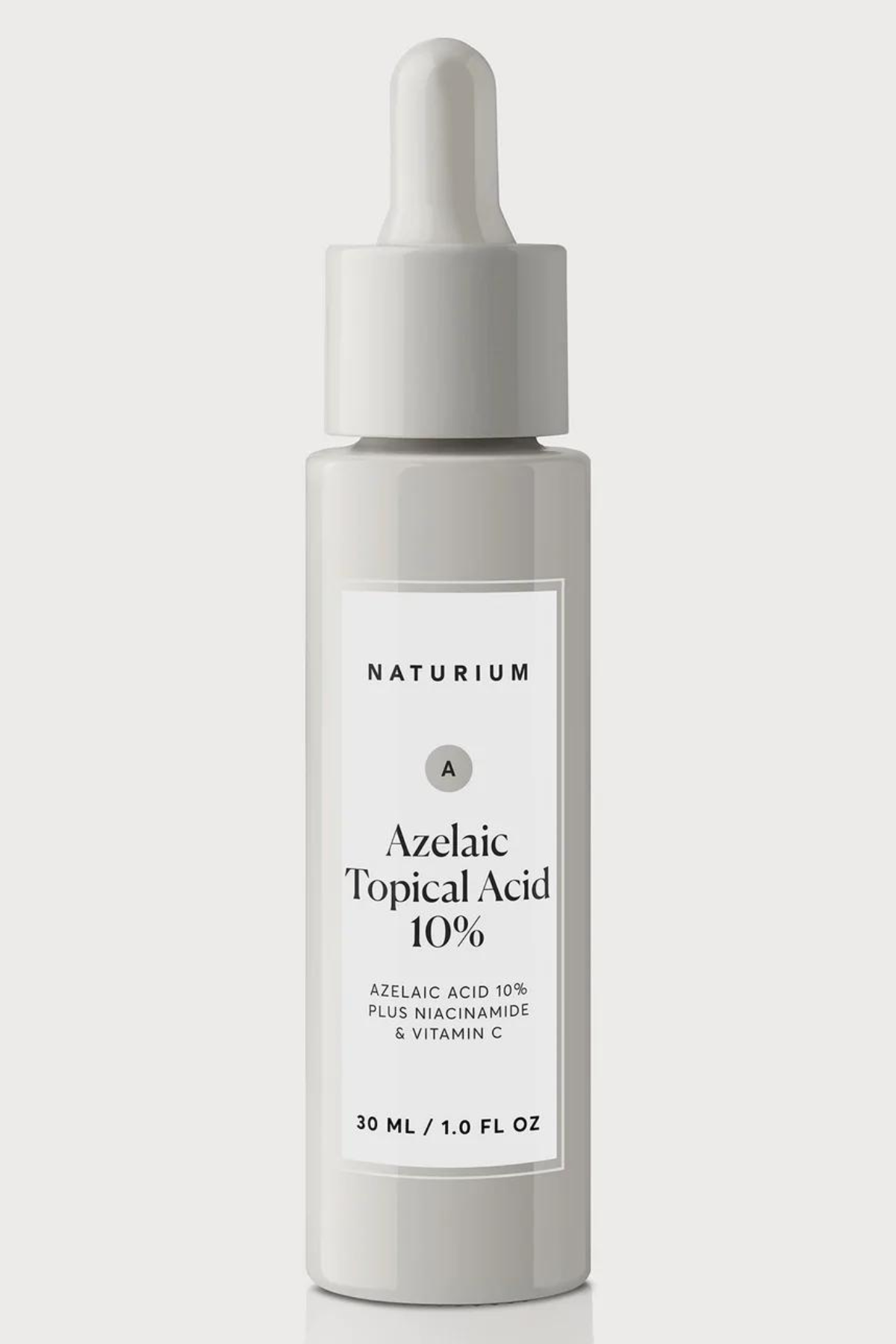
Azelaic acid is one of the most underrated ingredients in existence. It’s a miracle worker for rosacea (it helps with inflammation and redness), balances oil production (it’s great for dry and oily skin), gently exfoliates, fights melasma—I could go on. While some OTC and prescription products can be irritating, this Naturium product uses a derivative that plays down the negative side effects and amps up the benefits.
Pros: Multi-benefit; Oil control; Affordable
Cons: Might cause redness or sensitivity at the start; Some reviewers say the smell is too strong.
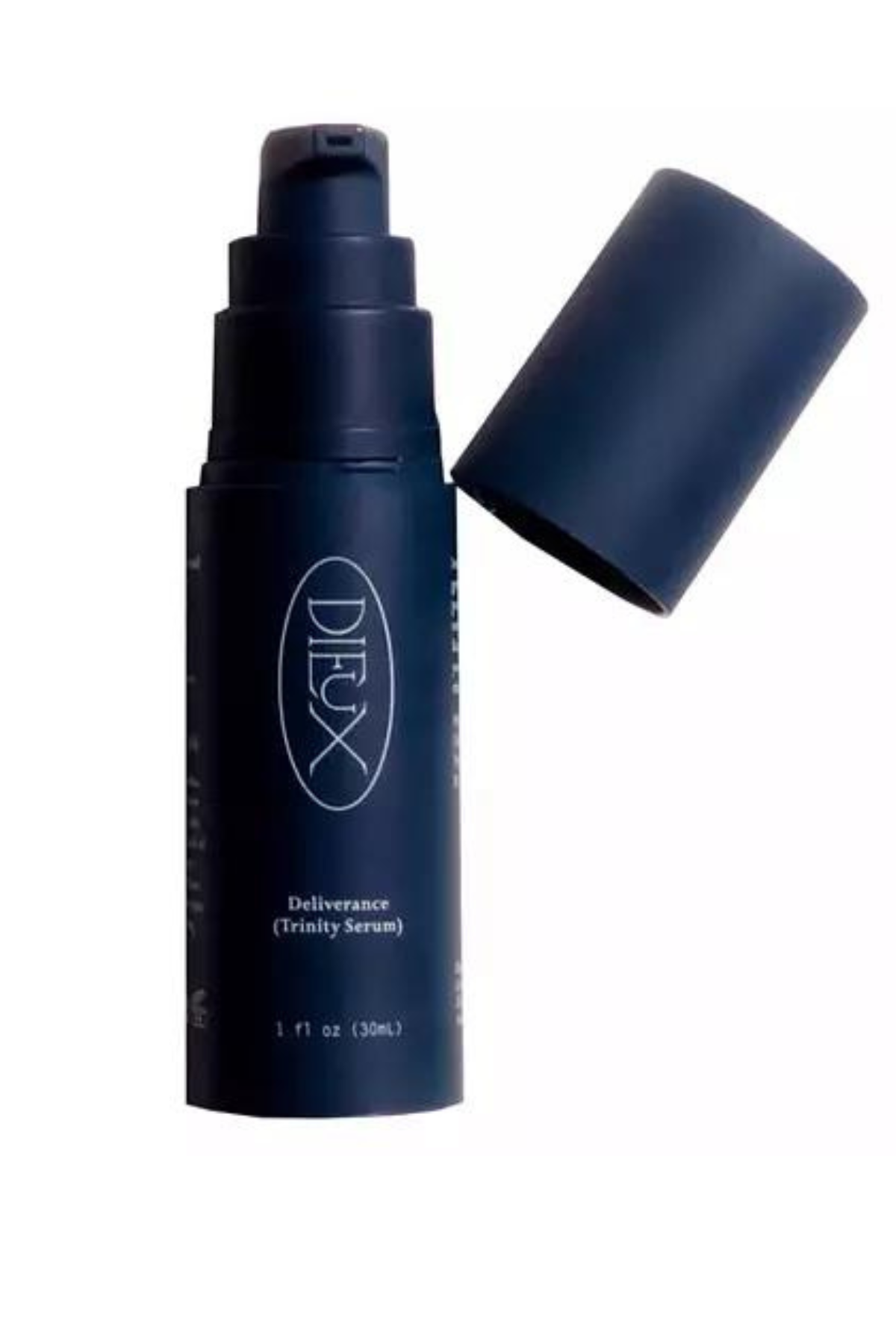
Be it redness, irritation, or breakouts, it’s a safe bet that your skin barrier is on the struggle bus. In addition to keeping your routine simple and using a great moisturizer, give this serum a go. It’s designed to target irritation, fine lines, and uneven tone in an uber-gentle, no-frills manner. In addition to a slew of powerful peptide complexes and soothing ingredients, the serum also features four percent niacinamide, which helps even out skin texture.
Pros: Calming; Good for irritated skin
Cons: Bottle doesn’t last long.
What Serum Is Best for Your Skin?
Well, it depends. “There are some ingredients that will be helpful for most skin types. For example, hyaluronic acid will hydrate the skin, niacinamide helps improve tone, texture, and moisture, and antioxidants help to protect the skin from damage from free radicals,” says Dr. King.
Other serums, however, are going to be much more treatment focused and designed with specific skin types in mind. “Serums for oily skin will have oil-absorbing ingredients like niacinamide, zinc, and lactic acid to minimize pore size and reduce sebum,” explains board-certified dermatologist Dr. Karen Hammerman. “Serums for dry skin will have hyaluronic acid, glycerin, and panthenol which draw in moisture. Acne-prone skin serums have salicylic acid, an exfoliant to help unclog the pores, and azelaic acid which eliminates p. acnes bacteria.”
Dr. King adds that in addition to skin type, you may want to take specific concerns into consideration while choosing the best serum for you. “Someone wanting to address skin aging may want a serum that contains retinol; someone wanting to address sun damage by exfoliating may want a serum that contains lactic acid; someone wanting to address dark spots may want a serum that contains niacinamide, antioxidants, kojic acid, licorice root extract, or tranexamic acid,” she says.
How Many Serums Should You Use?
There’s no hard and fast number to stick to, but it’s probably smart to keep things on the tamer side. “It is okay to use a few serums at a time and I would not say that there is a number as to how many serums you can use, but it is important not to overdo it,” says Dr. Hammerman. “This can happen with serums containing alpha hydroxy acids like lactic acid and glycolic acid and also with retinol serums. Too much of these ingredients can cause irritation, redness, burning, and breakouts.”
You also might have to contend with pilling, a.k.a. little balls of product that roll off the surface of the skin, if you use too many layers of product. “Pilling is one of my pet peeves because it makes me feel like I'm wasting valuable skincare products,” says Dr. King. “Some serums can be layered, but I personally think it's simpler to find one that addresses your concerns.”
How to Layer Serums
Hands down, this is one of the most asked questions in the beauty world. Thankfully, the answer is pretty simple. “Skincare products should be applied thickest to thinnest,” explains Dr. Hammerman. So you’ll cleanse, apply your serum(s)—a watery hyaluronic acid serum would go on before a more creamy lactic acid serum—and then lock it in with a moisturizer. So long as you follow that rule, all the active ingredients should be able to penetrate the skin.
Meet the Dermatologists

Dr. Hammerman is a native New Yorker who was raised on Long Island. She attended Barnard College, where she majored in environmental biology and graduated with honors. She received her M.D. degree from SUNY Downstate Medical Center in Brooklyn, where she then completed a preliminary year in general surgery followed by a two year research fellowship in skin regeneration and wound repair at NYU Medical Center. She completed her dermatology residency at SUNY Downstate Medical Center. Dr. Hammerman's research has been published in several peer-reviewed journals. She has authored and co-authored wound healing book chapters, and has written NIH research grants in the fields of wound healing and regeneration, stem cells, and the management of chronic wounds. She is a voluntary house staff dermatologist at Mount Sinai Hospital, where she teaches residents and medical students.
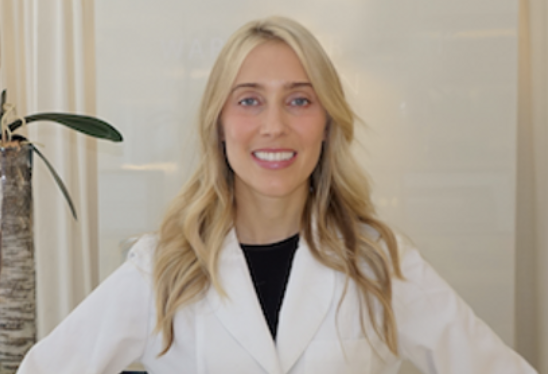
Hadley King, MD is a board-certified dermatologist who specializes in medical and cosmetic dermatology. She is also a Clinical Instructor of Dermatology at the Weill Medical College of Cornell University. Dr. King graduated magna cum laude from Harvard College with a degree in biochemistry. She received her MD from Columbia University. She trained in medicine at Greenwich Hospital, affiliated with the Yale University School of Medicine, and completed her dermatology residency at the Weill Medical College of Cornell University. After residency, Dr. King worked as an attending physician at Memorial Sloan-Kettering Cancer Center. She also has a background in immunology and her research has been published in a variety of medical journals, including the Journal of the American Medical Association. Dr. King is a highly sought after dermatologist in New York City and has won numerous awards including Castle Connolly Regional Top Doctor, Top Doctors New York Metro Area, New Beauty Top Beauty Doctor, and RealSelf Top Doctor.
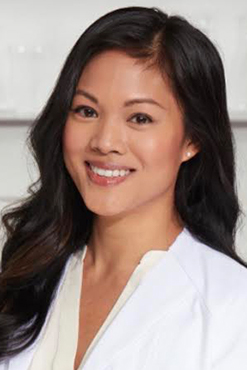
Dr. Tiffany J. Libby is a board-certified dermatologist and dual-fellowship trained Mohs surgeon and cosmetic surgeon. She is the Director of Mohs Micrographic and Dermatologic Surgery and an Assistant Professor of Dermatology at the Brown University Warren Alpert School of Medicine. Dr. Libby graduated from an accelerated 7-year B.S./M.D. program on a merit-based scholarship from Rutgers University-New Jersey Medical School, where she was inducted into the Alpha Omega Alpha Honor Society. Dr. Libby completed her Internship in Internal Medicine at The Mount Sinai Hospital in New York City. She served as Chief Resident during her dermatology residency at Albert Einstein College of Medicine/Montefiore Medical Center, and completely a dual fellowship program, receiving accreditation in both Mohs Surgery and Dermatologic Oncology as well as Cosmetic Dermatologic Surgery. Dr. Libby is an active member of several professional organizations, including the American Academy of Dermatology, the American College of Mohs Surgery, the American Society for Dermatologic Surgery, and the Women’s Dermatologic Society.
Get exclusive access to fashion and beauty trends, hot-off-the-press celebrity news, and more.
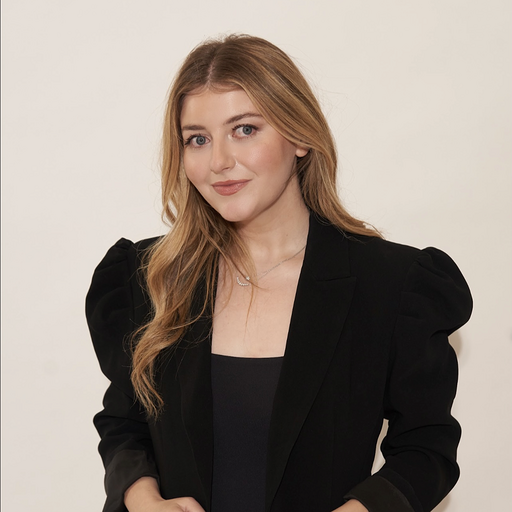
Samantha Holender is the Senior Beauty Editor at Marie Claire, where she reports on the best new launches, dives into the science behind skincare, and shares the breakdown on the latest and greatest trends in the beauty space. She's studied up on every ingredient you'll find on INCI list and is constantly in search of the world's glowiest makeup products. She's constantly tracking the biggest nail and hair trends to pop up in the beauty space, going backstage during fashion weeks, tracking celebrity looks, and constantly talking to celebrity hair stylists, nail artists, and makeup artists. Prior to joining the team, she worked as Us Weekly’s Beauty and Style Editor, where she stayed on the pulse of pop culture and broke down celebrity beauty routines, hair transformations, and red carpet looks. Her words have also appeared on Popsugar, Makeup.com, Skincare.com, Delish.com, and Philadelphia Wedding. Samantha also serves as a board member for the American Society of Magazine Editors (ASME). She first joined the organization in 2018, when she worked as an editorial intern at Food Network Magazine and Pioneer Woman Magazine. Samantha has a degree in Journalism and Mass Communications from The George Washington University’s School of Media and Public Affairs. While at GWU, she was a founding member of the school’s HerCampus chapter and served as its President for four years. When she’s not deep in the beauty closet or swatching eyeshadows, you can find her obsessing over Real Housewives and all things Bravo. Keep up with her on Instagram @samholender.